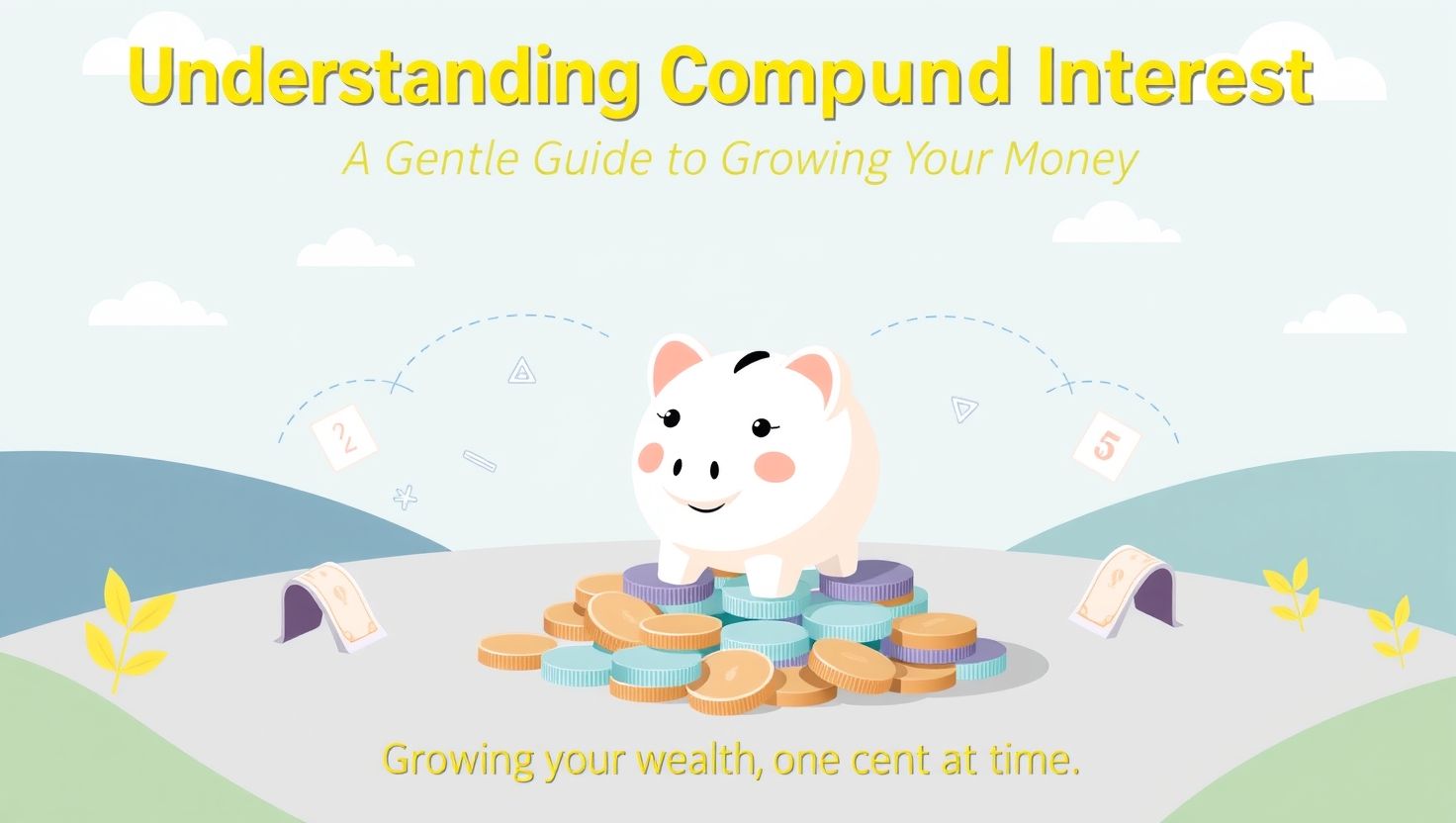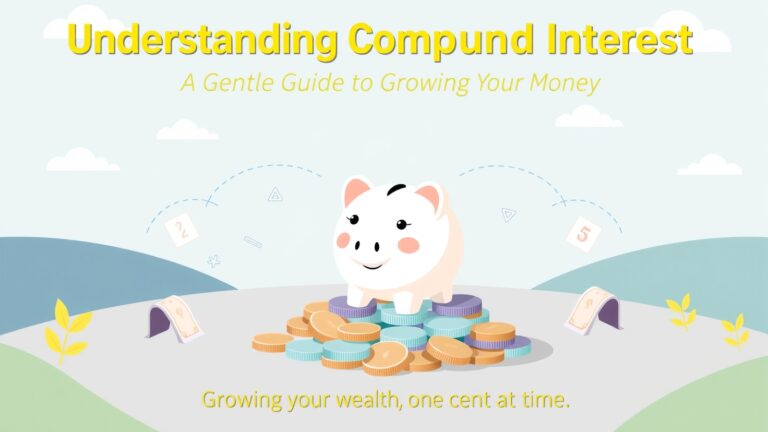Understanding Compound Interest: A Gentle Guide to Growing Your Money
Money has a quiet magic to it—when given time and the right conditions, it can grow in ways that might surprise you. At the heart of this growth is compound interest, a simple yet powerful concept that can work for or against you, depending on how you use it.
In this post, we’ll gently explore what compound interest is, how it works, and why understanding it can help you make more mindful financial decisions.

What Is Compound Interest?
Compound interest is the process where interest is earned not just on your original investment (or principal) but also on the interest that accumulates over time. Unlike simple interest, which only grows linearly, compound interest grows exponentially—meaning the longer you let it work, the more dramatic the results.
A Simple Example
Imagine you deposit $1,000 in a savings account with a 5% annual interest rate, compounded yearly.
- Year 1: You earn **50∗∗ininterest(51,000), bringing your total to $1,050.
- Year 2: You now earn 5% on 1,050∗∗,whichis∗∗52.50, making your total $1,102.50.
- Year 3: Interest is calculated on 1,102.50∗∗,adding∗∗55.13, for a new total of $1,157.63.
At first, the growth seems slow, but over 10 years, that 1,000wouldgrowto∗∗1,628.89**—without you adding another dime. Over 20 years, it becomes $2,653.30.
This is the magic of compounding: time and patience turn small, consistent gains into something much larger.
The Two Sides of Compound Interest
While compound interest can help savings grow, it can also work against you when borrowing. Credit cards, loans, and mortgages often use compounding, meaning debt can snowball if not managed carefully.
The Good: Growing Investments
- Savings accounts
- Retirement funds (401(k), IRA)
- Investments (stocks, bonds, ETFs)
The earlier you start saving, the more time compounding has to work in your favor. Even small, regular contributions can lead to significant growth over decades.
The Bad: Growing Debt
- Credit card balances
- Payday loans
- High-interest personal loans
If you carry a balance on a credit card with a 20% APR, compounding can quickly make your debt much harder to pay off. This is why paying down high-interest debt early is so important.
How to Make Compound Interest Work for You
- Start Early – Even small amounts grow significantly over time.
- Be Consistent – Regular contributions amplify compounding.
- Reinvest Earnings – In investments, dividends and interest should be reinvested to maximize growth.
- Avoid High-Interest Debt – Prioritize paying off loans or credit cards where compounding works against you.
Final Thoughts
Compound interest is a gentle but relentless force in finance. By understanding how it works, you can harness its power to build savings and avoid the pitfalls of compounding debt. Whether you’re saving for retirement, a home, or simply a more secure future, remembering the quiet magic of compounding can help you make wiser, more patient financial choices.
Would you like to share how compound interest has played a role in your financial journey? Feel free to leave a comment below.
